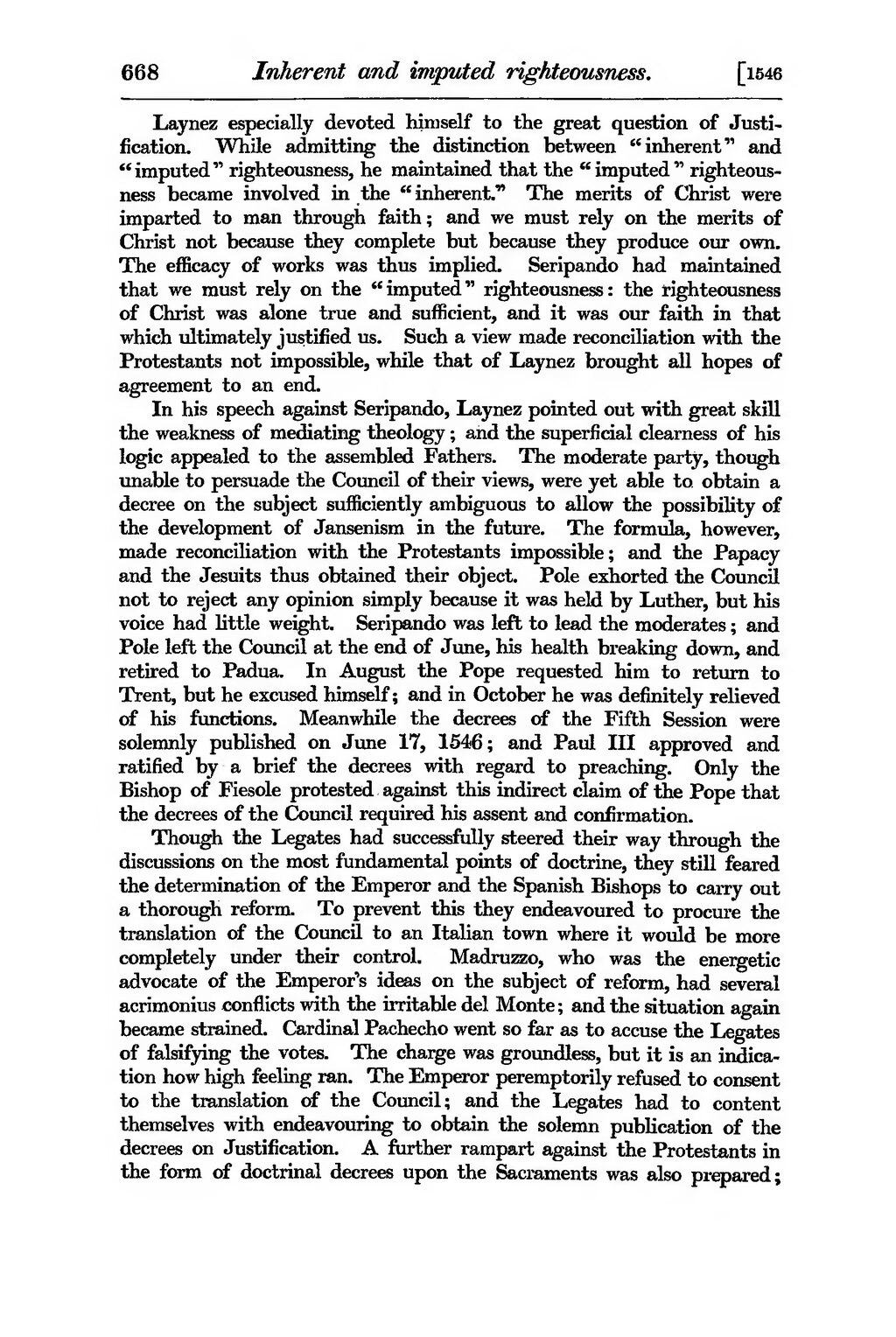Laynez especially devoted himself to the great question of Justification. While admitting the distinction between "inherent" and " imputed " righteousness, he maintained that the " imputed " righteousness became involved in the "inherent." The merits of Christ were imparted to man through faith; and we must rely on the merits of Christ not because they complete but because they produce our own. The efficacy of works was thus implied. Seripando had maintained that we must rely on the "imputed" righteousness: the righteousness of Christ was alone true and sufficient, and it was our faith in that which ultimately justified us. Such a view made reconciliation with the Protestants not impossible, while that of Laynez brought all hopes of agreement to an end.
In his speech against Seripando, Laynez pointed out with great skill the weakness of mediating theology; and the superficial clearness of his logic appealed to the assembled Fathers. The moderate party, though unable to persuade the Council of their views, were yet able to obtain a decree on the subject sufficiently ambiguous to allow the possibility of the development of Jansenism in the future. The formula, however, made reconciliation with the Protestants impossible; and the Papacy and the Jesuits thus obtained their object. Pole exhorted the Council not to reject any opinion simply because it was held by Luther, but his voice had little weight. Seripando was left to lead the moderates; and Pole left the Council at the end of June, his health breaking down, and retired to Padua. In August the Pope requested him to return to Trent, but he excused himself; and in October he was definitely relieved of his functions. Meanwhile the decrees of the Fifth Session were solemnly published on June 17, 1546; and Paul III approved and ratified by a brief the decrees with regard to preaching. Only the Bishop of Fiesole protested against this indirect claim of the Pope that the decrees of the Council required his assent and confirmation.
Though the Legates had successfully steered their way through the discussions on the most fundamental points of doctrine, they still feared the determination of the Emperor and the Spanish Bishops to carry out a thorough reform. To prevent this they endeavoured to procure the translation of the Council to an Italian town where it would be more completely under their control. Madruzzo, who was the energetic advocate of the Emperor's ideas on the subject of reform, had several acrimonius conflicts with the irritable del Monte; and the situation again became strained. Cardinal Pachecho went so far as to accuse the Legates of falsifying the votes. The charge was groundless, but it is an indication how high feeling ran. The Emperor peremptorily refused to consent to the translation of the Council; and the Legates had to content themselves with endeavouring to obtain the solemn publication of the decrees on Justification. A further rampart against the Protestants in the form of doctrinal decrees upon the Sacraments was also prepared;
